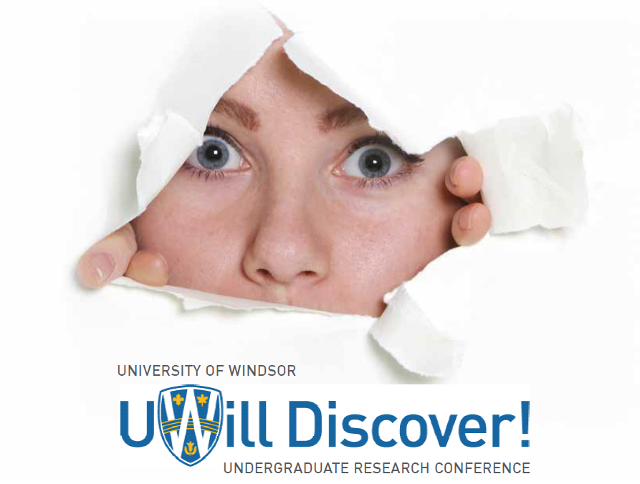
Type of Proposal
Oral presentation
Faculty
Faculty of Arts, Humanities and Social Sciences
Faculty Sponsor
Kendall Soucie
Proposal
Seeing It through My Eyes and Remembering It My way: Transformative Life Event Memories in Young and Midlife Adults with Early-onset Blindness Abstract How people frame and narrate their transformative life events, such as low points, high points, and turning points, in young and middle adulthood has been found to have a long-lasting impact on identity development and psychological well-being (e.g., McAdams, Reynolds, Lewis, Patten, & Bowman, 2001; McLean & Pratt, 2006). Transformative life event memories, however, have yet to be systematically examined in individuals who are blind or visually impaired. This exploratory study aims to investigate the qualitative characteristics of transformative life event memories in young and midlife adults with early onset-blindness (i.e. having a visual acuity of 20/200 or below with the age of onset before 2 years). Participants in this study will be recruited from Canadian National Institute for the Blind (CNIB). Participants will complete an adapted version of the Life Story Interview either online or in person (McAdams, 1993). During the interview, participants will be instructed to recall and describe three transformative life events that they have personally experienced, including a turning point event, a low point event, and a high point event, and answer several follow-up questions about each memory. We propose to analyze the content and themes of participants’ transformative life event memories qualitatively using interpretative phenomenological analysis (IPA). The findings of this research study will help to expand the body of research on autobiographical memories and life story narratives and will potentially help promote positive psychosocial development within the blind community. This project will be completed in spring 2017. References McAdams, D. P. (1993). The stories we live by: Personal myths and the making of the self. New York, NY: W. Morrow. McAdams, D. P., Reynolds, J., Lewis, M., Patten, A. H., & Bowman, P. J. (2001). When bad things turn good and good things turn bad: Sequences of redemption and contamination in life narrative and their relation to psychosocial adaptation in midlife adults and in students. Personality and Social Psychology Bulletin, 27(4), 474-485. doi:10.1177/0146167201274008 Mclean, K. C., & Pratt, M. W. (2006). Life's little (and big) lessons: Identity statuses and meaning-making in the turning point narratives of emerging adults. Developmental Psychology, 42(4), 714-722. doi:10.1037/0012-1649.42.4.714
Start Date
31-3-2017 2:00 PM
End Date
31-3-2017 3:20 PM
Seeing It through My Eyes and Remembering It My way: Transformative Life Event Memories in Young and Midlife Adults with Early-onset Blindness
Seeing It through My Eyes and Remembering It My way: Transformative Life Event Memories in Young and Midlife Adults with Early-onset Blindness Abstract How people frame and narrate their transformative life events, such as low points, high points, and turning points, in young and middle adulthood has been found to have a long-lasting impact on identity development and psychological well-being (e.g., McAdams, Reynolds, Lewis, Patten, & Bowman, 2001; McLean & Pratt, 2006). Transformative life event memories, however, have yet to be systematically examined in individuals who are blind or visually impaired. This exploratory study aims to investigate the qualitative characteristics of transformative life event memories in young and midlife adults with early onset-blindness (i.e. having a visual acuity of 20/200 or below with the age of onset before 2 years). Participants in this study will be recruited from Canadian National Institute for the Blind (CNIB). Participants will complete an adapted version of the Life Story Interview either online or in person (McAdams, 1993). During the interview, participants will be instructed to recall and describe three transformative life events that they have personally experienced, including a turning point event, a low point event, and a high point event, and answer several follow-up questions about each memory. We propose to analyze the content and themes of participants’ transformative life event memories qualitatively using interpretative phenomenological analysis (IPA). The findings of this research study will help to expand the body of research on autobiographical memories and life story narratives and will potentially help promote positive psychosocial development within the blind community. This project will be completed in spring 2017. References McAdams, D. P. (1993). The stories we live by: Personal myths and the making of the self. New York, NY: W. Morrow. McAdams, D. P., Reynolds, J., Lewis, M., Patten, A. H., & Bowman, P. J. (2001). When bad things turn good and good things turn bad: Sequences of redemption and contamination in life narrative and their relation to psychosocial adaptation in midlife adults and in students. Personality and Social Psychology Bulletin, 27(4), 474-485. doi:10.1177/0146167201274008 Mclean, K. C., & Pratt, M. W. (2006). Life's little (and big) lessons: Identity statuses and meaning-making in the turning point narratives of emerging adults. Developmental Psychology, 42(4), 714-722. doi:10.1037/0012-1649.42.4.714
